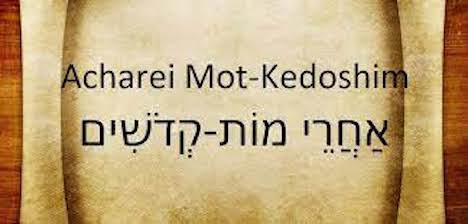
And you shall keep My statutes and My laws- which a person must do, and live by them…
“And live by them…”:
[Meaning:] Not that you should die through them.
“And live by them”:
In the World-To-Come. For if you say [that the verse refers to living] in this world, does he not eventually die?
Commentators ask that these two interpretations seem to completely conflict with each other. Is Rashi’s quote of the Sifra actually intended to convey the verse’s simple meaning? How could that square with the Talmud’s teaching?
Rav Shimon Schwab (Germany, United States; 1908-1995) says that this question is based on a mistaken assumption- that life in this world is completely different than life in the next world. The truth is that this world and the next are very much connected. In fact, says Rav Schwab, death is really nothing more than the removal of the physical body from the spiritual soul (as the soul returns to its spiritual Source, and the body to its physical, earthly origins)- a process similar to removing a coat. Just as one takes off his raincoat after coming inside from the rain, so is our body- a physical layer necessary for living in this material world- simply separated from the soul when a person dies, as it is no longer needed. Then, the soul is left to shine on its own, unimpeded by the body.
Rav Schwab uses this priniciple to erase the question we have been dealing with. There is no contradiction between a life of mitzvot in this world on the one hand, and life in the World to Come. Instead, a life lived well entails a seamless continuum in which a soul kept holy by keeping the Torah continues to live on in the next world.
“All of B’nei Israel have a share to the World to Come.”
-Mishnah Sanhedrin, Chapter 11
Grammatically, it would seem more correct to say that everyone has a portion ‘in’ the World- to- Come; what is meant by ‘to’ the World- to- Come? While other commentators offer different answers, Rav Schwab teaches as follows: even someone still living a physical existence in this world can already be said to be going ‘towards’ the next world. One who lives according to the Torah has essentially already attached himself to an eternal existence, and is already on the road to his or her eventual portion in the World to Come.
Similarly, says Rav Schwab, a person described by our Rabbis as a ‘Ben Olam Habah‘- roughly, ‘a member of the World to Come’, is so titled not just because he or she will one day merit reward from good deeds, but because such a person is already living the spiritual attachment to Hashem that will be more fully enjoyed after death.
This world is similar to a hallway before the World to Come; prepare yourself in the hallway so that you may enter the palace.
-Again, a person with the correct mindset, living a Torah life and clinging to Hashem, is truly preparing to move into the next room. Such a person, a ‘Ben Olam Habah’, appreciates that we are merely passing through this world- and that the journey is already underway.
– Concluding blessing on a communal Torah reading
Have a great Shabbat!
|
ReplyForward
|